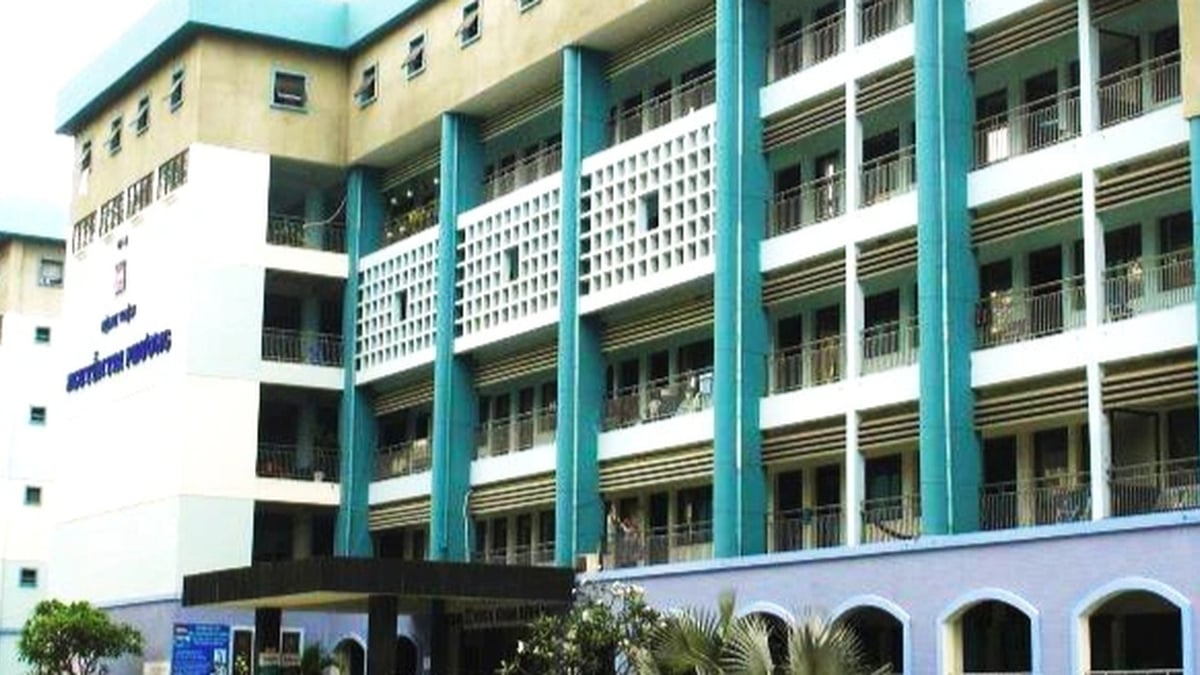
Application of information technology in investigation
From July 1, 2024, the General Statistics Office will coordinate with the Ethnic Committee to collect information to investigate the socio -economic situation of 53 ethnic minorities nationwide.
Deputy Director General of the General Statistics Office Nguyen Trung Tien said that the new point of this survey is that the criteria for determining survey areas have changed compared to previous surveys.
Accordingly, the survey area is defined as an area where the number of ethnic minorities living accounts for 15% or more of the total population of the area, instead of 30% as in previous surveys.
With this innovation, the total number of districts sampled for the survey increased from 437 districts in 2019 to 472 districts, many of which had their entire areas sampled for the survey. The total number of sampled survey areas increased from 14,660 survey areas in 2019 to 14,928 survey areas in 2024.
2024 is the third time the General Statistics Office and the Committee for Ethnic Minorities continue to coordinate to conduct surveys and collect information on the socio-economic situation of 53 ethnic minorities. The previous surveys were conducted in 2015 and 2019.
Each survey content is discussed and debated carefully from the stages of review, determination of survey content, questionnaire form, survey area, representative level of data, organization, propaganda, inspection, supervision... to have a common consensus to achieve the best results.
By applying digital transformation in surveys, the time for data synthesis and review will be shortened so that survey results can be announced as early as 2025.
The 2024 survey of 53 ethnic minorities is very important, aiming to collect information on population, housing, marriage, health, education , living conditions... to compile statistical indicators of the National Statistical Indicator System and the Statistical Indicator System on Ethnic Work to serve the development and planning of socio-economic development policies for ethnic minority areas in the period of 2026 - 2030; as a basis for updating the information system and statistical data on ethnic minorities in Vietnam.
The survey uses a direct information collection method. Enumerators will visit each household to collect information on: Population demographics; education; migration; marriage; health insurance use; employment; birth history and contraceptive use of women aged 10-49 and information on deaths; housing and living conditions; loss of housing, productive land; some major livestock; household access to public services.
In addition, the investigation content for the People's Committee of the commune includes information on: Characteristics of the commune; use of electricity, roads, traffic; schools and teachers' qualifications; cultural houses; health and environmental sanitation; markets and industrial clusters/zones; qualifications of commune-level officials and civil servants; religion, beliefs; telephone and internet coverage.
Investigators are the force that directly approaches ethnic minority households and commune People's Committee officials to collect information. The results of the input information collected by the investigator are an important factor in determining the accuracy of the survey results.
Therefore, the provincial and municipal statistical offices have selected people with a high sense of responsibility, good grasp of survey techniques, and proficient use of tablets and phones to conduct electronic survey forms (CAPI). In particular, the selected investigators are those who understand the culture of ethnic minorities and the areas assigned to conduct the survey.
Prepare all resources to conduct the investigation
According to Deputy General Director Nguyen Trung Tien, the preparation work has been carried out methodically and promptly by the General Statistics Office and the Ethnic Committee to successfully conduct the survey.
Identifying the need to strengthen the application of information technology in the survey, the General Statistics Office has been actively building and perfecting application software programs.
These are information collection programs, exploitation programs, and results announcement programs; programs to build ethnic minority databases, helping to strengthen survey management, shorten the time for data synthesis and review with higher accuracy so that survey results can be announced as soon as possible in 2025.
The information collection period of the investigation lasted 45 days, so the training and selection of investigators was carefully carried out by localities through professional training conferences at both the central and provincial levels so that investigators and supervisors had the best skills in conducting the investigation.
Propaganda work is also given attention and focus so that ethnic minorities clearly understand the purpose and meaning of the investigation as well as fulfill their obligation to provide accurate, complete and timely information to investigators.
Depending on the locality, appropriate forms of propaganda are applied through the erection of billboards, posters, banners, and slogans in public places such as offices, cultural centers, etc.
Currently, the whole country has nearly 29,000 village elders, village chiefs, and prestigious people in ethnic minority communities. This is a force that creates a solid spiritual support for the ethnic minority community because they are not only the ones who understand the thoughts, feelings, and legitimate aspirations of the people, but also always take the lead in mobilizing and propagating people to implement legal documents and maintain a cultural lifestyle.
Therefore, the General Statistics Office has prepared an open letter in Kinh language and translated into 3 ethnic languages (Bana, Ede and Gia-rai) to send to village elders, village chiefs, and prestigious people among ethnic minorities, requesting their attention and support in propaganda work, and encouraging ethnic minorities to cooperate in providing information to investigators.
The survey results will be processed promptly, ensuring reliability and accuracy, and will be an important basis for the Party and State to develop and promulgate appropriate policies to promote rapid and sustainable socio-economic development in ethnic minority areas in the 2026-2030 period, so that no one is left behind," said Deputy General Director of Statistics Nguyen Trung Tien.
Source


























![[Photo] National Assembly Chairman attends the seminar "Building and operating an international financial center and recommendations for Vietnam"](https://vphoto.vietnam.vn/thumb/1200x675/vietnam/resource/IMAGE/2025/7/28/76393436936e457db31ec84433289f72)







































































Comment (0)